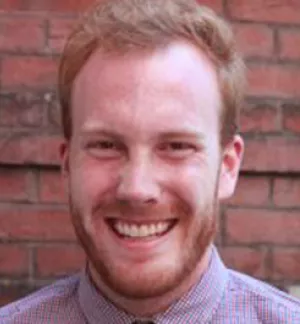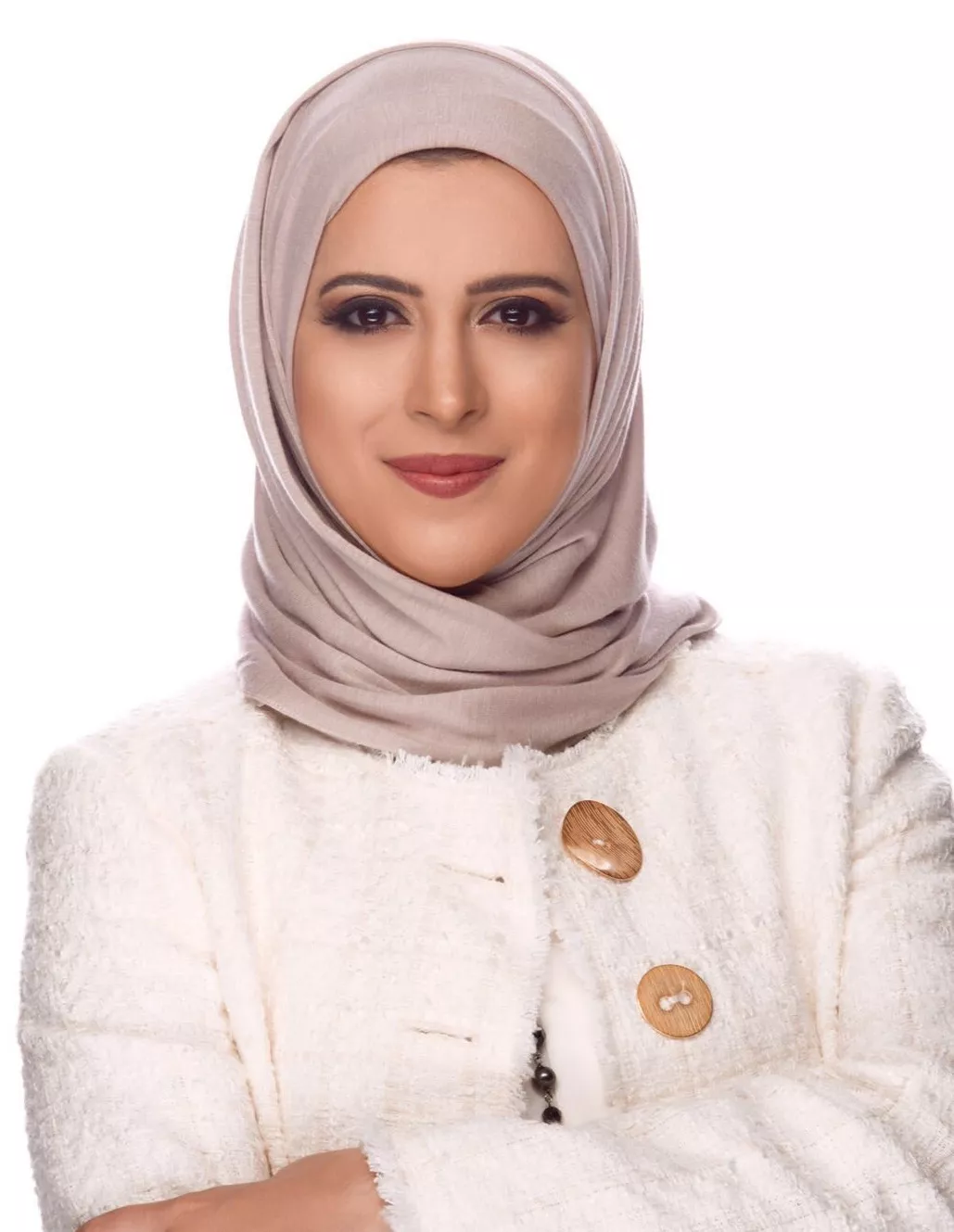
Kuwait Visiting Research Fellowship
As the first Kuwait Visiting Research Fellow for the spring 2019 semester, Dr. Abrar Ebel, Assistant Professor of Management and Marketing at Kuwait University, advanced research on the privatization of public healthcare organizations and pay-for-performance in healthcare in Kuwait. Professor Ebel, whose research interests center around organizational culture, compensation, entrepreneurship, motivation, and healthcare management and quality, undertook this project under the direction of MEI Faculty Director Professor Tarek Masoud. While at Harvard, Prof. Ebel refined her research agenda and interacted with scholars of organizational behavior, healthcare management, and Middle East public policy, including scholars from the Harvard Institute for Quantitative Social Sciences and Dr. Ashish Jha, director of the Harvard Global Health Institute and a scholar of global healthcare policy. Prof. Ebel also found time to participate actively in the MEI community, meeting with MEI Research Fellows and participating in the biweekly MEI research seminars. In collaboration with Prof. Masoud and MEI Research Fellow Prof. Yuree Noh, she developed the research design for her study focused on pay-for-performance policies and their impact on physicians’ attitudes and behaviors, and planned to implement data collection and analysis upon her return to Kuwait.
To learn more about the Kuwait Program at HKS, visit belfercenter.org/mei#kuwait-program
To learn more about Dr. Ebel’s research, visit belfercenter.org/person/abrar-ebel
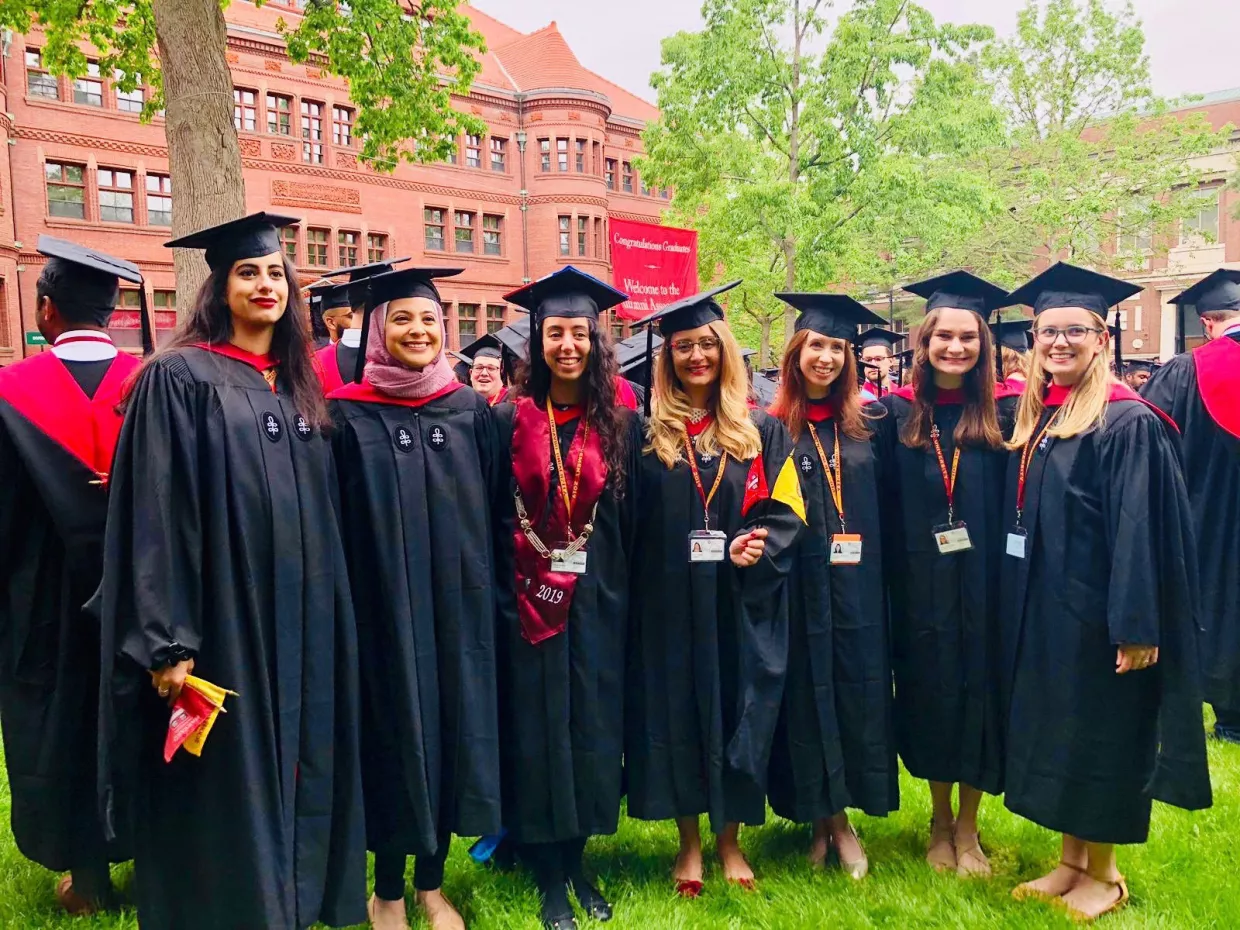
Congratulations to the 2017-2019 MEI Interns!
In May 2019, MEI celebrated commencement with the entire Harvard community, including many students from and interested in the region. In particular, MEI offered well wishes to Center for Middle Eastern Studies AM graduates Ellen Stockert and Oula Alrifai. Throughout their two years at Harvard, Ellen and Oula served as MEI interns, contributing to every piece of MEI’s work, including events, research fellowships, student outreach, website management, and publications.
While making these contributions, both quickly became an integral part of the MEI community. In conjunction with their time at MEI, both developed their work on Middle East area studies and public policy. Ellen studied Arabic in Lebanon during summer 2018 and joined the MEI-supported field course on Frontline Humanitarian Negotiations in Lebanon during January 2019 (p. 7). Oula spent summer 2018 studying Farsi in Armenia, which she applied to policy questions around Iranian influence in her native Syria. She also presented her short documentary on child labor and protection in southeastern Turkey as part of MEI’s short films program in April 2019 (p. 24). With gratitude and appreciation for their work and friendship, MEI recognizes their service to our community and wishes them the best as they continue their careers in Middle Eastern Studies and Public Policy!
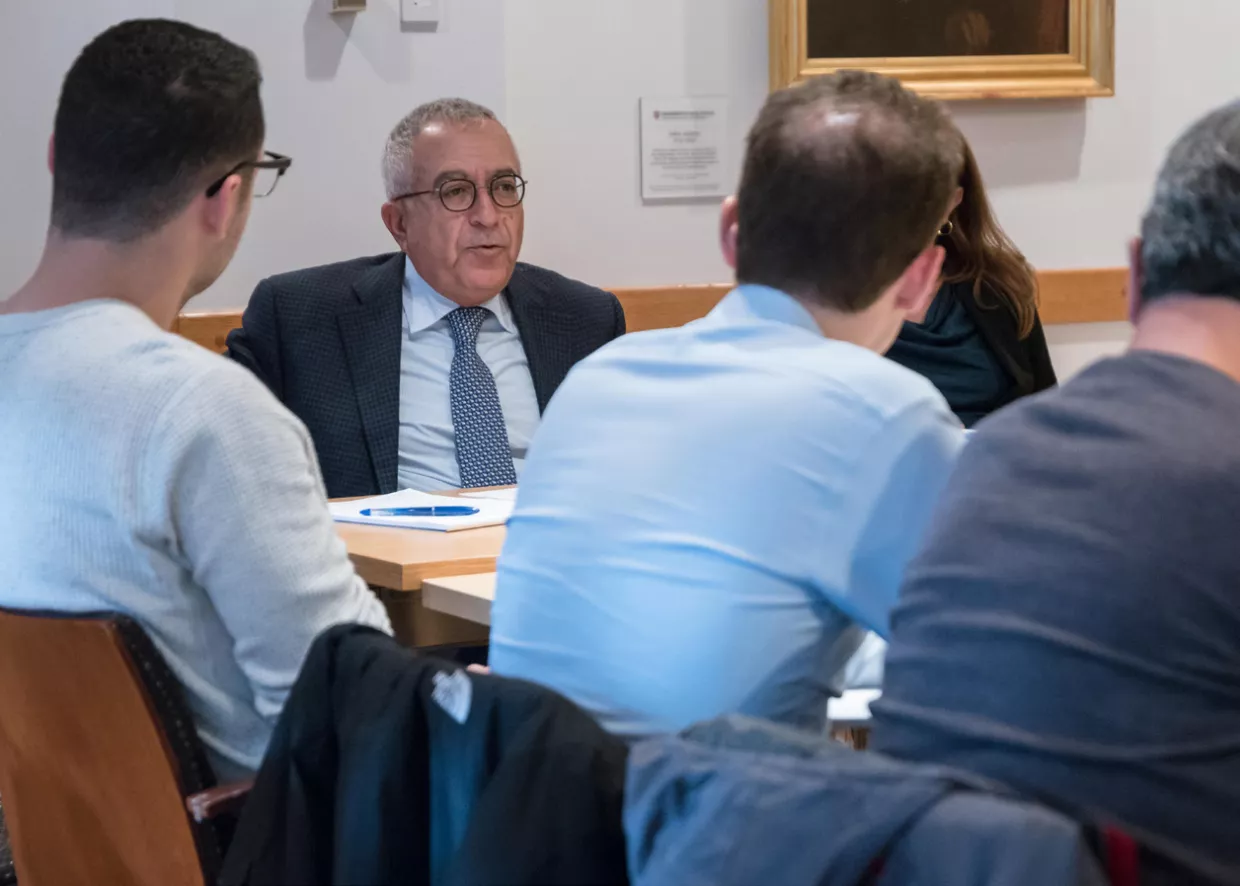
Pathways to Democracy in the Arab World
During fall 2018, Senior Fellow Dr. Salam Fayyad led a study group exploring democratic experiments across the region with a focus on Tunisia and discussing policy tools to implement good governance and economic reform. Open to all members of the Harvard community, the study group was attended by research fellows, students, and affiliates from across the University, including the Kennedy School, the Graduate School of Arts and Sciences, and the Medical School. Over four sessions, Dr. Fayyad discussed the role of international financial institutions to promote good governance in the broader pursuit of democratization. In the final exercise, participants drew upon their own experiences as well as the preceding discussions and affirmatively concluded that, despite the challenges, there are pathways to democracy in the Arab World.
To learn more about Dr. Fayyad and his time at the Middle East Initiative, visit belfercenter.org/person/salam-fayyad
“Learning from Dr. Fayyad’s experience as a practitioner in and scholar of the Middle East shaped my understanding of implementing good governance in the region. Dr. Fayyad’s study group provided a discussion platform on reform and economic development efforts. Access to his experience and the academic framework he provided complemented my classroom studies and encouraged me to think critically about my future.”
Reem Jafari, Mason MC/MPA ’19
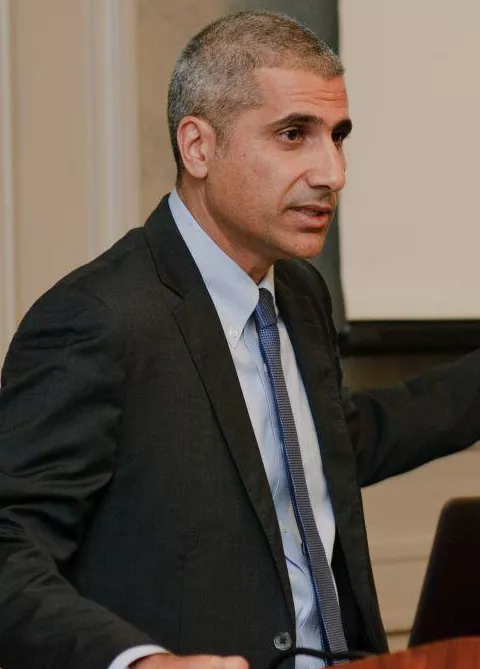
Budgeting for Economic Inclusion in Israel
Israeli Government Resolution No. 922, passed in December 2015, altered budget allocations to direct an increased percentage of national funds to the Arab community and called for increased investment in the Arab social sector. MEI Senior Fellow Amir Levi was the lead architect of Resolution No. 922. He served as head of the Budgets Department in the Israeli Ministry of Finance—equivalent to the American Office of Management and Budget (OMB)— from 2013-2017. Remarkably, the resolution was adopted by a right-wing government during a time of heightened intercommunal tension in Israeli society.
During the 2018-2019 academic year, Levi analyzed the passage and implementation of the resolution, as well as its implications for Arab citizens of Israel and the Israeli economy. Levi’s research, “How Israel can promote minorities and address growing inequality,” focused on employment and integration of Arabs into the education, transportation, housing, and infrastructure sectors of the Israeli economy. This research built upon previous work he conducted while in residence with the Kennedy School’s Mossavar-Rahmani Center for Business and Government, including a study with former MEI Research Fellow Diana B. Greenwald and Guy Grossman, a preliminary analysis of whether greater public transit access for Israeli Arabs increased employment. Levi also cooperated with Prof. Tarek Masoud, Senior Case Writer Anjani Datla, and the HKS Case Program to develop a case study on Resolution No. 922 and minority integration in Israel. In the year ahead, Levi will finalize his case study with the HKS Case Program and will host meetings within the Harvard community to discuss the resolution.
To learn more about Levi’s research, visit belfercenter.org/person/amir-levi
“Analyzing the gaps between the [budget allocation and outputs of the Arab and Jewish populations in Israel] held up a mirror to everyone… the asymmetries were no longer sustainable and had to be addressed.”
Amir Levi & Daniel Suchi
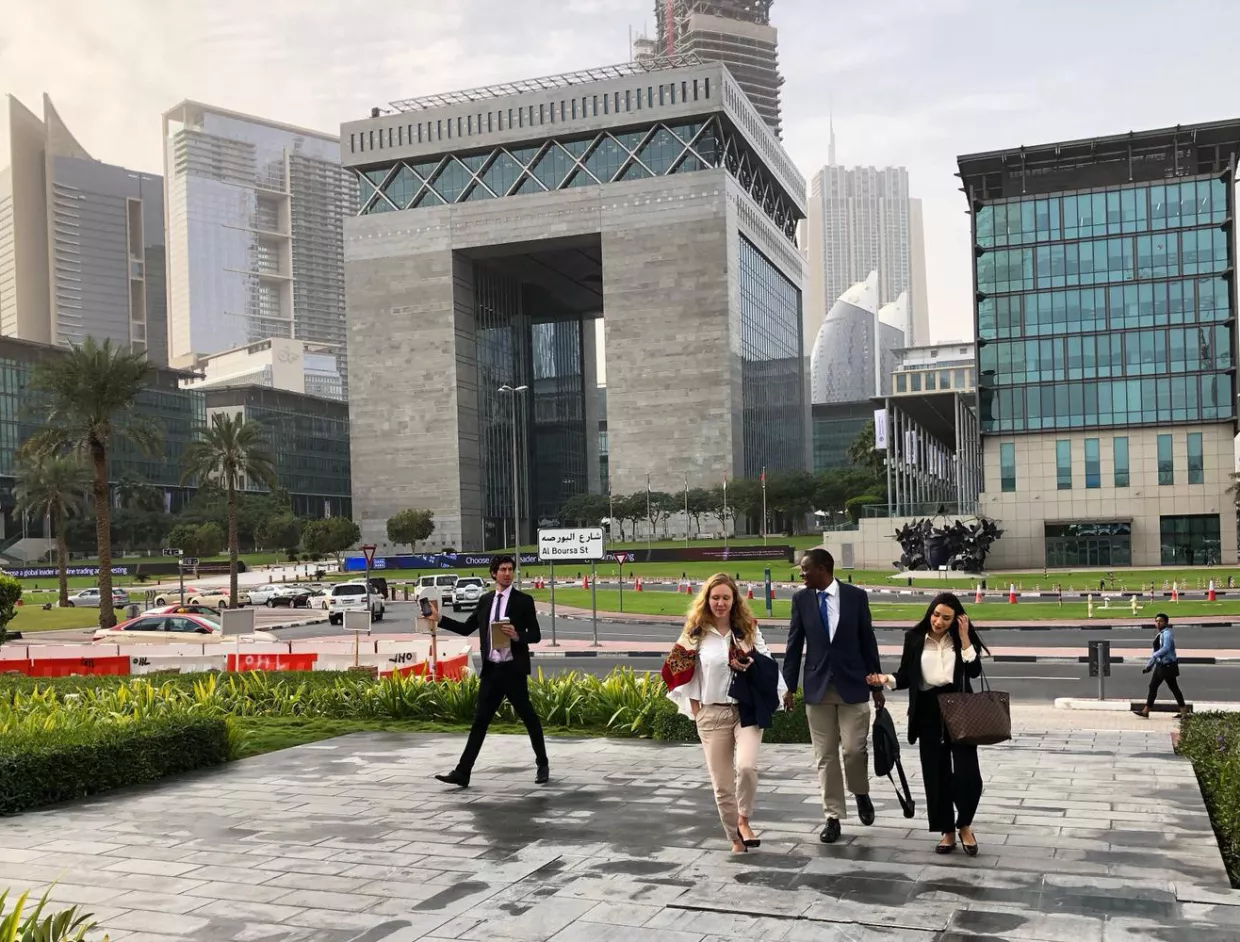
Celebrating Five Years of the Emirates Leadership Initiative
In January 2019, ELI Student Fellows, MEI and WAPPP Research Fellows, and 10 HKS students selected from a competitive pool of 150+ applicants participated in a week-long visit to the UAE on “Innovation in Government and Public Policy: Gender Inclusion and the Future of Work.” Participants attended 37 meetings focused on policy themes, spanning five business days in three Emirates. The cohort also had an audience with H.H. Sheikh Mohamed bin Zayed Al Nahyan while on the visit. The students were exposed to how the UAE utilizes a top-down approach to policymaking in the space of gender parity as one of a handful of countries worldwide pursuing gender parity as an explicit policy agenda.
During the visit, the Emirates Leadership Initiative convened alumni from the ELI Graduate Student Fellowship, Middle East Initiative Research Fellowship, and Executive Education program to celebrate the first five years of the Emirates Leadership Initiative. Over 75 attendees participated in this special event in Abu Dhabi, including faculty, senior HKS leaders, and special guests. This event served as the official launch of the ELI alumni community and included faculty and alumni panels, a keynote from Prof. Tarek Masoud, alumni-led “Brain Trusts,” and group excursions.
To learn more about the Emirates Leadership Initiative at HKS, visit belfercenter.org/mei#emirates-leadership-initiative
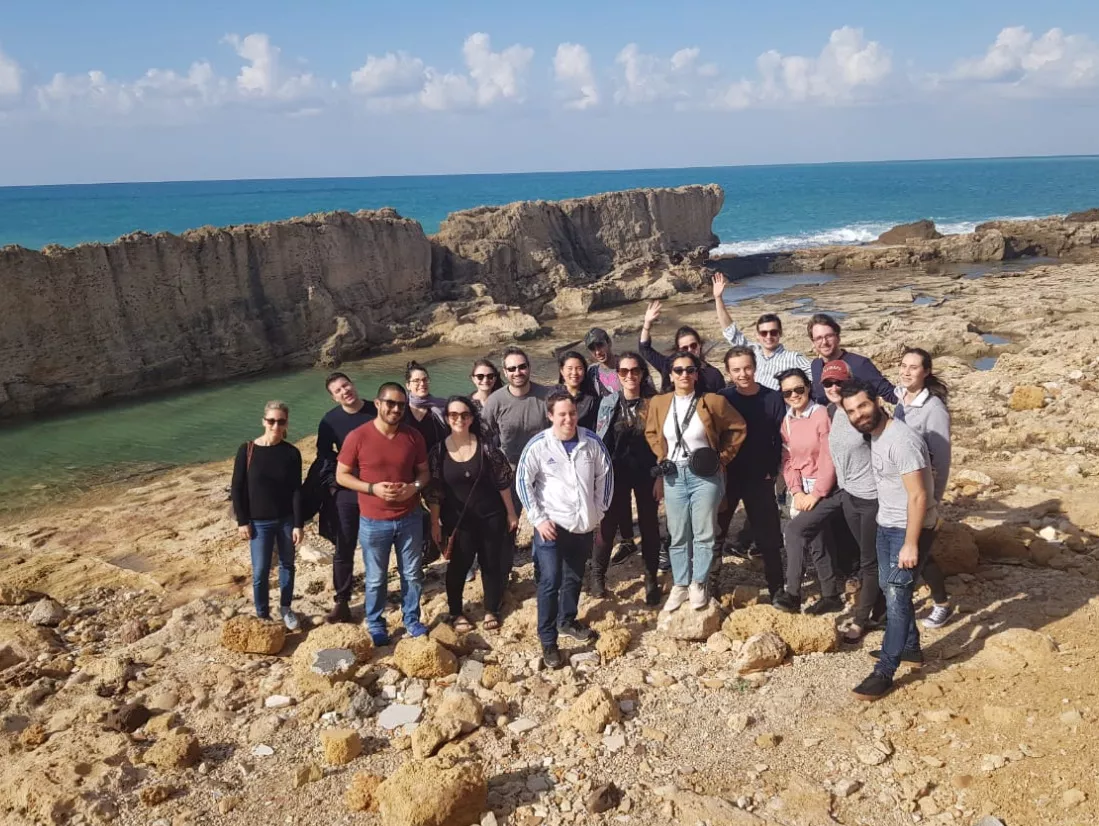
Negotiating to Protect Refugees’ Rights in Lebanon
As the Syrian civil war and refugee crisis grinds on and political discourse on refugees’ presence becomes more contentious, humanitarians in Lebanon find themselves navigating increasingly difficult conversations about what constitutes the safe, dignified, and voluntary return of populations displaced by conflict. MEI Faculty Affiliate Claude Bruderlein, Program Manager of the Advanced Training Program on Humanitarian Action (ATHA) at Harvard Humanitarian Initiative (HHI) Anaide Nahikian, and MEI Student and Outreach Coordinator Maura James entered these conversations with fifteen students from across Harvard’s graduate and professional schools. In January 2019, the course “Middle East Field Study: Humanitarian Negotiations on the Frontlines” examined the challenges facing humanitarian organizations in Lebanon as they negotiate policies related to Syrian refugees. Course participants spent three weeks in Beirut, Lebanon before presenting their work to representatives from international humanitarian organizations in Geneva, Switzerland.
Students met with over 30 stakeholders involved in the social, political, and humanitarian conversations about policies related to Syrian refugees in Lebanon. Debriefing sessions with Bruderlein and Nahikian led students to identify and deconstruct narratives of the crisis and to formulate a deeper understanding of the humanitarian issues at play. Concurrently, students worked in teams to develop a manual for humanitarian negotiators in Lebanon about how to leverage their mission and mandate, as well as the interests of their counterparts and the requirements of international law, to advance negotiations toward strengthening humanitarian protections.
After the students’ presentation in Geneva, members of Bruderlein’s team at the Centre of Competence on Humanitarian Negotiation adapted the students’ work for use at a March 2019 conference for humanitarian negotiators in Byblos, Lebanon. Six course participants also discussed their experiences with the field study at an MEI public event in April 2019.
“Middle East Initiative Program Updates.” Mawhorter, Christopher, ed. Mosaic, December 20, 2019


